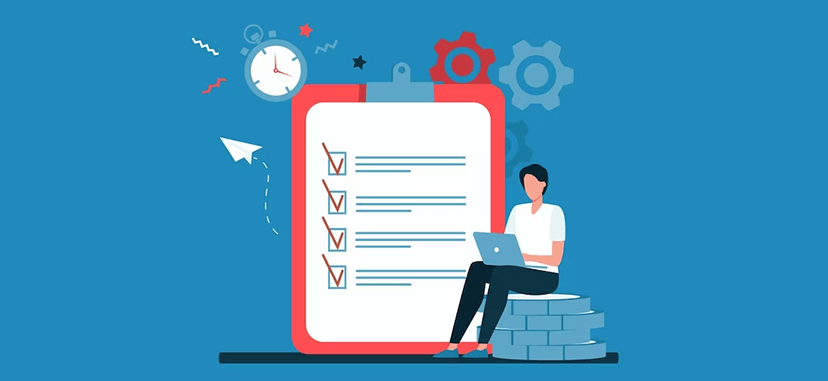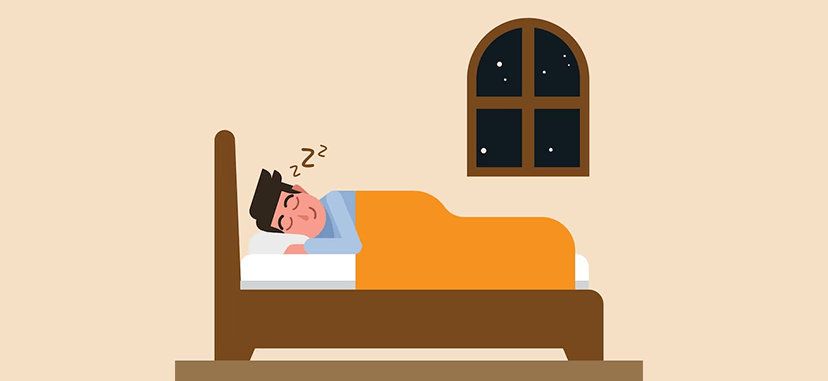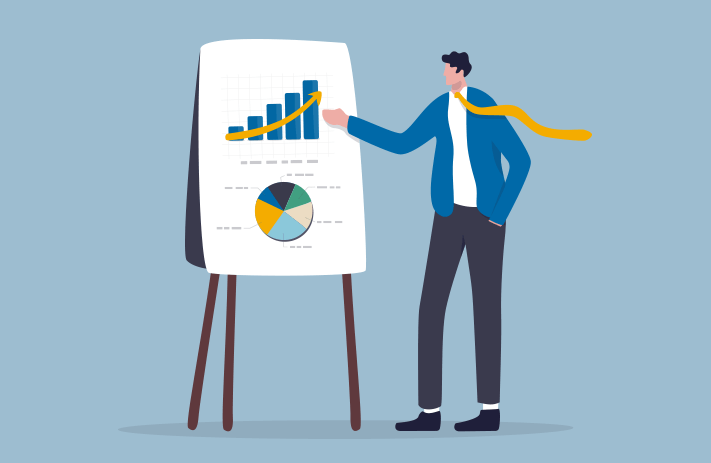
Click the button to start reading
How to Avoid the Dangerous (and Sneaky!) Trap of Toxic Productivity
These days, hustling and productivity are marks of pride. How often do you hear people subtly drop into a conversation that they wake up at 4 am or put in a 70- hour work week? We live in a world that elevates anyone who somehow manages to do it all.
And of course, this is an enviable feat, as we all have dreams to fulfill, bucket list items to check off and milestones to meet, both professionally and personally. We want to live a full life. The irony of productivity, however, is that when it accelerates to a certain level, “doing it all” means losing what is essential. Getting caught up in a web of “go, go, go” means we don’t reap the benefits of hustling, and bask in the pride of a job well done.
When things get to this point, the solution is to get off the treadmill, to learn to smell the roses and to replace FOMO with JOMO (the fear of missing out with the joy of missing out).
From time to time, we all have more on our plates than we can handle. But if your daily life has escalated to where you always face an endless to-do list and you can’t see a way out of the busyness matrix, then this post is for you.
We’re going to pinpoint just what this hyper-busyness is costing you and uproot some of the causes of toxic productivity. Then, we’ll look at tried-and-true methods for giving the checklist the boot and living your best life.

The What, How & Why of Toxic Productivity
The “experts” have developed more than a few productivity methods over the past several decades. So many that it’s fair to say that productivity is somewhat of an obsession in this modern culture. From OKRs to KPIs to Gantt charts, burndown charts, scrum boards, kanban boards, scrumban and lean principles, agile principles, the critical chain method and the theory of constraints, no small amount of brain power has been dedicated to improving the way we go about solving problems, organizing projects and creating products.
And on balance, all this insight has improved things. Efficiency and productivity save money, free up time and improve the quality of output. Yet taken to the extreme, anything good becomes distorted and destructive. And productivity is no exception.
When cranked to the max, the habits and mentality around productivity turn people into machines. People tweak schedules and cut corners, doing anything and everything to increase output. Plus, this mentality doesn’t allow for respite, for even one moment to enjoy hard-won efforts, before continuing on to accomplish something else.
Toxic productivity is when your dedication to productivity compromises another equally important part of your life. Your relationships decline, you lose sleep, skip meals, and stop going to the gym in favor of getting work done. It’s an addiction to the treadmill, an obsessive need to always be “on,” always doing.
Just like any toxic substance, toxic productivity is harmful, even poisonous to our insides. It’s a destructive way of being.
Examples of Toxic Productivity
What might toxic productivity look like in a daily routine? It’s someone who routinely wakes up at the crack of dawn and hits the treadmill while listening to an audiobook at two times the regular speed. She answers emails while crunching on a bagel, and eats lunch in the scant moments between back-to-back meetings. Her entire day is spent burning through a relentless list of tasks, right up until it’s time to crash for a few hours of sleep, before resuming the same grind the following day.
Toxic productivity is when someone needs to check items off a list, simply for the sake of checking them off, even if the tasks are neither important nor urgent. It’s someone who feels guilty about sleeping in, “wasting” a morning watching TV, or spending a leisurely afternoon at the park. She lives for the dopamine she gets out of constantly doing.
Toxic productivity doesn’t allow for long mornings, for second breakfasts, for internet deep dives, for leisurely walks. It forbids basking in the sun, gabby conversations about nothing at all, facials and thirty minute showers.
Time is approached frugally, and treated like a scarce commodity. Tasks are wedged tightly between each other, as though life is a game of tetris. Not a single moment is ever “wasted.”
The problem with this, however, is that it isn’t a normal or healthy way to live. It leaves people drained and exhausted. Just like a machine, a human battery needs to be recharged as well.
What Causes Toxic Productivity?
What is the cause of this work-til-you-drop mindset? In large part, toxic productivity is created by a culture that values doing over anything else. Some workplaces go so far as to penalize people who don’t forfeit their overall well-being and put in 14 hour days, week-in and week-out. Looking flustered and multitasking is a sign that you’re on the ball. It shames anyone who puts the phone on airplane mode and takes an afternoon off to shoot pool.
And this principle seeps beyond the workplace and into all areas of life. In addition to working full time, people feel a compulsion to complete marathons, pursue hobbies, and raise a family to boot.
This culture elevates productive people. We shake our heads in admiration at the person who plays jujitsu with her schedule. “Wow, look at her go. I don’t know how she does it,” we marvel as she struts away to subdue and defeat another milestone.
Just like nicotine or caffeine, productivity actually has an additive quality. People receive small hits of dopamine when they check off little daily tasks, including unnecessary things like mid-day trips to a big box store to stock up on light bulbs. And then they go for the big dopamine hits, such as earning more titles after their names, and receiving additional board certifications. Rather than work toward the accomplishment itself, people chase after the feeling associated with accomplishment. And once they receive one hit, they’re already in need of another.
Productivity is equated with value. Many cannot get off the productivity train as they believe it’s a measure of their worth as a person.

Telltale Signs of Toxic Productivity
It’s good to get things done, and to do them efficiently. We need to earn degrees and promotions, to plow to the end of our row. And so how can you tell if you’re veering into the toxic zone? Here are some signs that things may have gone off the rails.
A List Rules the Day
If your life is cluttered with lists; you have one checklist in your car, one at your bedside, and another on the refrigerator; it may be a sign that the scales have tipped in favor of toxic productivity.
A Pina Colada, a Towel…and a Laptop?
When you hit the beaches for some well-earned time off, do you also take along your phone and computer, just to wrap a few things up? If you can’t ever entirely unplug from the productivity machine, it may indicate a compulsion to work, work, work.
A Phobia of Dull Moments
If you can’t sit in silence for a moment or two without grabbing your phone to check notifications and respond to texts, it may mean that “being on” has become more of a need than a discipline.
The Desk Also Functions as the Dinner Table
If you eat in the car, eat at your desk, skip meals entirely, and rarely take time to sit at a table and enjoy a meal, it’s an indication that your life is on a relentless treadmill that’s always running at a grueling speed.
If any of these signs explain you, then you may be caught up in a lifestyle that’s ultimately unfulfilling. Toxic productivity takes a toll…and reversing these patterns provides many tangible benefits.

The Benefits of Avoiding the Productivity Trap
Just like removing any dangerous toxins from your body, anyone who reverses lifestyle patterns of toxic productivity sees a marked improvement in many areas of his life.
Sleep
When you’re able to permanently cross some things off the to-do list, it creates time for regular old things like rest and relaxation. And what’s there to complain about that? Regular sleep is a cornerstone to good health. It may well even add a few years to your life. Studies show that centenarians, on average, have received a balanced night’s rest over the span of their lives.
Friendship
Relationships are often the first things to shelve in the relentless drive to get things done. Making time to catch up with a friend gets pushed back further and further on the schedule, and close friendships instead consist of little more than “liking” someone’s Facebook update. When a recovered workaholic, however, finds time to enjoy the little things, the joy of many friendships start to blossom again. Catching up with a friend over coffee or in a phone call becomes routine.
Self-Care
Toxic productivity takes a mental toll, no doubt about it. It’s closely linked to depression, burnout, anxiety and irritability. When someone instead pursues a healthy relationship to productivity, overall health and quality of life improve. The hamster wheel stops spinning, and it becomes possible to live, not just exist. It makes space for the best things in life, such as eating good food, reading, listening to live music, and killing an afternoon with a friend.
With all these benefits, it’s clear why anyone might seek to avoid the trap of toxic productivity. Let’s go over some tips for doing just that.

7 Tips to Overcome Toxic Productivity
For many, extreme productivity is a deeply ingrained habit, developed over a decade or more. But just like any habit, it can be unlearned. We may be living in a culture that values productivity, but as individuals we can make a choice of whether or not to play along. Here’s some tips to avoiding the productivity trap and finding the time to “veg” and “just be.”
Audit Your Time
Reversing patterns of hyper-productivity start by looking at the granular. Taking an audit of how you spend your entire day over a week or two breaks down everything in the daily routine. With this breadth, it’s possible to notice patterns, to see where time is being allocated, and to shift things around. Maybe some things need to be moved out, while others can be moved in.
Prioritize
With the clarity achieved from auditing time, it’s possible to scrutinize all the activities that occupy your day, and prioritize the right ones. The principles behind the popular Eisenhower (or priority) matrix are helpful in this process.
Rather than chasing after urgent problems that need to be completed “now,” the Eisenhower matrix encourages focusing on the most important things. It makes it easy to cut out busywork, and hone in exclusively on whatever it is that brings an organization closer to accomplishing its objectives.
Delegate
We all have things in our schedule that require our own particular set of skills. However, our days are full of other important tasks that can be offloaded. Mowing the lawn and cleaning the house can become the occupation of your local lawn care and house cleaning professionals. And within an organization, so many administrative tasks can be delegated to a virtual assistant. Any well-trained VA is the perfect candidate for things like editing podcasts, creating social media posts, and writing newsletters.
Set Boundaries
When we answer emails, respond to texts, and eat lunch all while participating in a meeting, we set a productivity trap for ourselves.
A sure method to avoiding this trap is to create silent, focused work environments. This may mean shutting off notifications, reducing ambient noise, and eliminating any other distracting influences in order to focus on the task at hand.
Let Some Things Go
The term “lowering standards” has a dirty notion associated with it. But sometimes this is just the tonic needed to fix toxic productivity.
Many workaholics are also perfectionists. However, “doing it all” is a fantasy. No one can make dinner every night, run marathons, produce a lifestyle blog, raise kids and have a career all at the same time.
Letting some of these things go might mean eating take out or frozen pizza more often than you like. But if in the long run, it improves your peace of mind, it’s worth it.
Practice Niksen
Niksen is a Dutch word that means “doing nothing with intention.” And although the concept has long been practiced by the Dutch, it is now spreading to other cultures as well.
Niksen is the opposite of toxic productivity. It means taking time to stare out the window and enjoy a spring or autumn landscape, to relax in a coffee shop without any agenda at all. Allowing yourself to just be, without any expectations, frees up cognitive overload, and allows for peace and rejuvenation.
Re-define “Time Well Spent”
It’s easy to climb on board with other people’s notions around productivity. But getting into a cycle of constant improvement doesn’t necessarily improve things in the end. A re-evaluation of your values around time may create space for lingering at a farmers market, listening to some live music or taking the time for a manicure.
As with any new habit, it’s uncomfortable and non-intuitive to start out on the path to heal from toxic productivity. But after just a short while, injecting stillness and peace into one’s life becomes an addiction all of its own.
Conclusion
Sometimes we get so caught up in a cycle of busyness that it feels impossible to ever be released from it. However, people have managed to get out, and have lived to tell the tale.
Maybe it means that the pile of junk in your backyard sits there for another few months, the car doesn’t get washed, or the lawn isn’t always mowed. But when the payoff is your peace of mind, these costs are pretty low.
Plus, when your enjoyment increases, the story of your life becomes a tale that you want to be telling…and to be a part of.
















